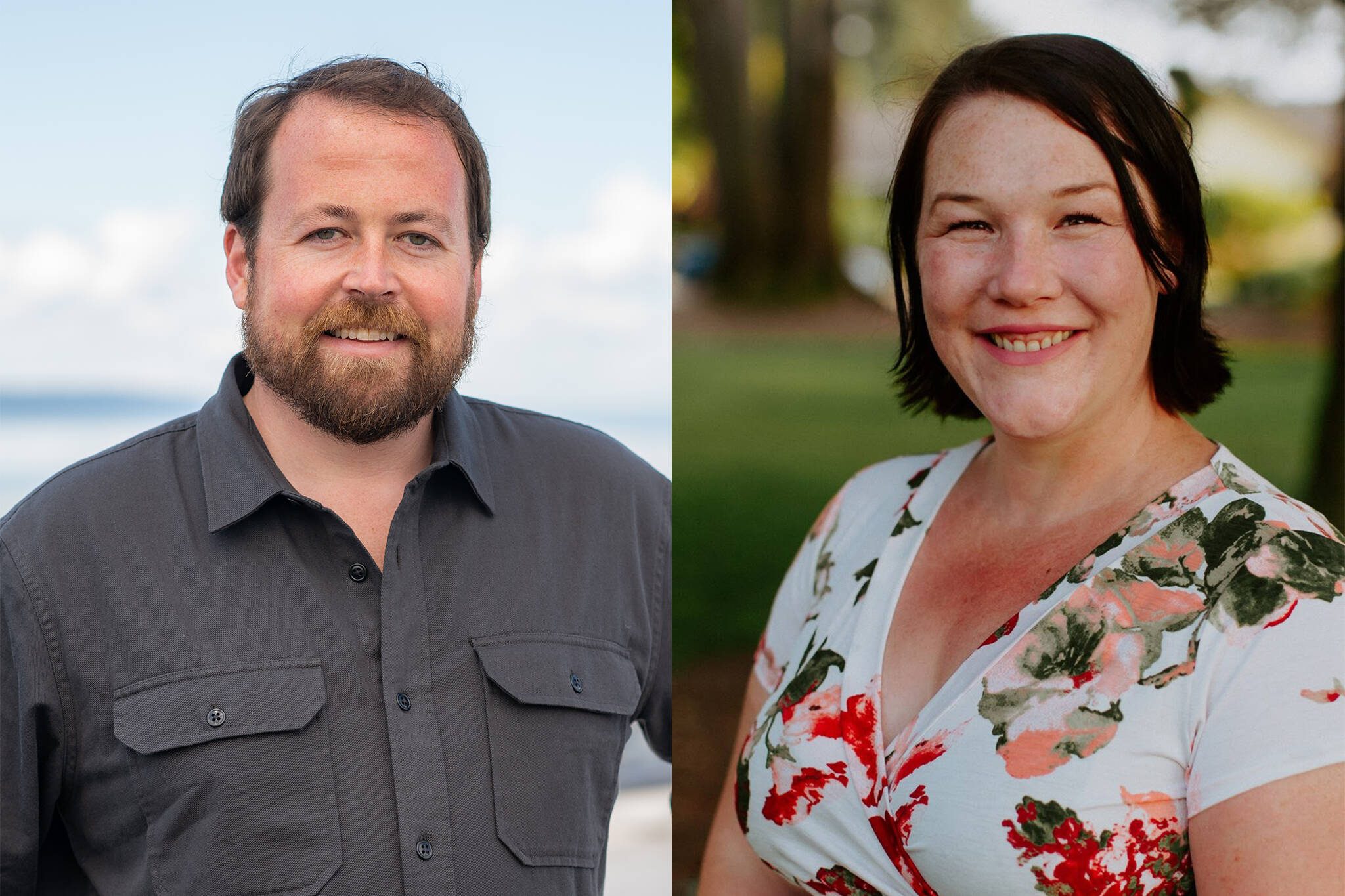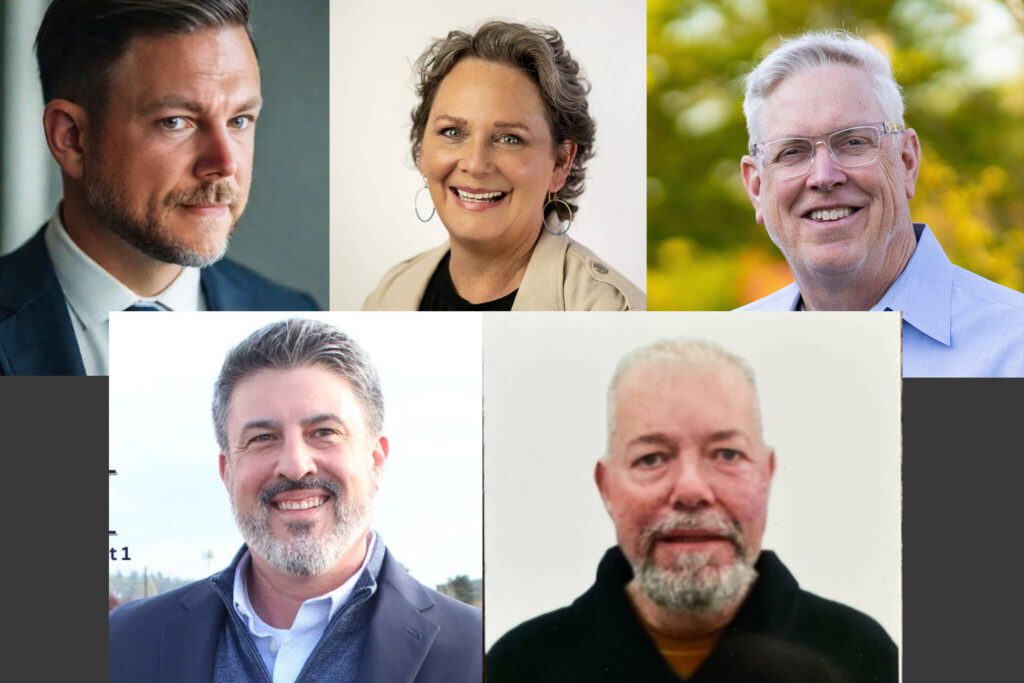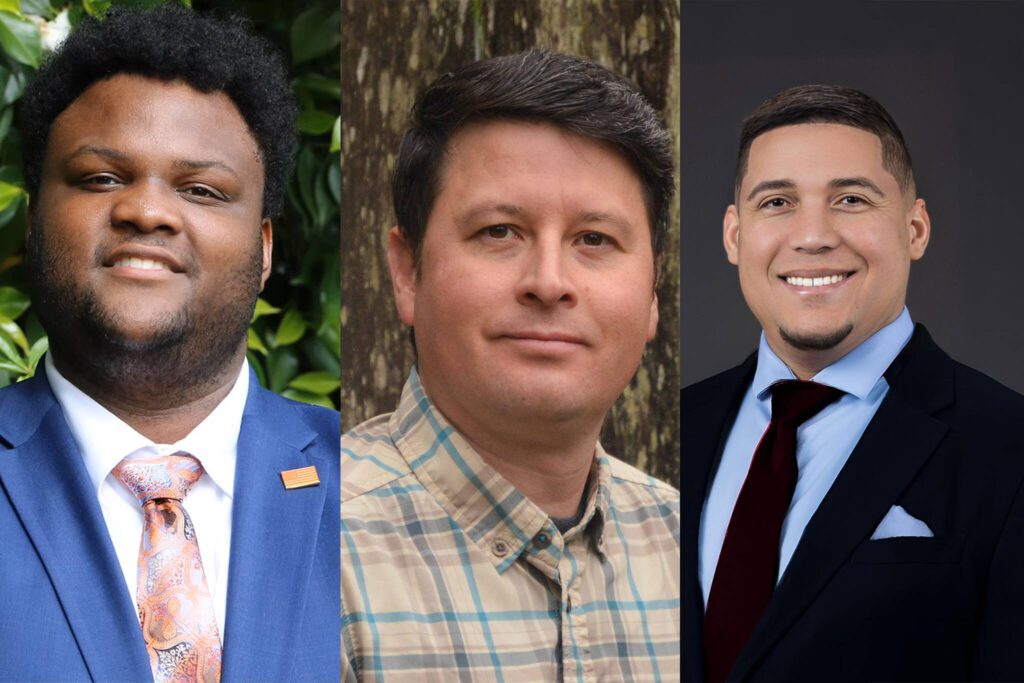EVERETT — As election officials nearly completed the ballot counting process, winners in two close primary races for the District 1 and District 4 seats on Everett’s City Council emerged Thursday.
The District 2 seat had long been decided.
Labor organizer Sam Hem took first place in the primary with 32% of the vote. Erica Weir, the general manager of the Village Theatre, earned 28%.
The two will advance to the November general election. Consultant Mason Rutledge was trailing behind Weir by less than 200 votes, earning 24% of the vote.
Hem and Rutledge earned significantly more in campaign contributions than the others who sought the seat. As of Tuesday, Rutledge earned $31,975 while Hem got $31,689, according to campaign disclosure filings.
While on the campaign trail, Hem said he would incentivize developers to use project labor agreements when building major housing projects. He also said the city could take notes from Seattle’s recent “Maker’s District” rezoning and find creative ways to build workforce housing.
“We’re happy with the results last night and look forward to the rest of the results coming in. We are deeply grateful for the outpouring of support from our community,” Hem wrote in a statement Wednesday. “This campaign has always been about listening, learning, and working together—and we’re ready to carry that momentum forward.”
Weir’s campaign focused on addressing the city’s budget issues and building support systems for homeless individuals. She received $9,290 in campaign contributions.
In a statement, Weir said she was “deeply grateful” for the support in the primary, and she valued the “respectful engagement” from the other candidates.
“I’m running for leadership rooted in transparency, collaboration, and action,” Weir wrote Wednesday. “As a third-generation resident, I’m proud to be from Everett, for Everett, and I look forward to continuing this respectful, solutions-focused conversation with residents. If elected, I will work tirelessly to serve our community with integrity and care.”
Rutledge’s campaign focused on improving the city’s public safety and adding a new retail core within District 1. He said his experience working in the business sector would allow him to build bridges between companies and the city to solve public safety issues.
“This race has been defined by listening, inclusion, and responsiveness—and that journey isn’t over,” Rutledge wrote in a statement Wednesday. “The next 24 hours will write a vital chapter, not just for our campaign, but for our city. I’m hopeful for strong outcomes across every race. Now is the moment for common-sense, community-driven team work amongst the council.”
Bill Wheeler, who works in facilities maintenance, earned 12% of the vote. His top priorities were lowering city taxes and spending while increasing transparency. He opted to run a mini reporting campaign, meaning he did not have to file contribution and expenditure reports but couldn’t raise or spend more than $7,000.
Steven Sullivan, a retiree who previously worked at an antique shop, received 4% of the vote. During his largely quiet campaign, his focuses were on building a detox center and a teen center while also revitalizing the city’s downtown. He also opted to run a mini reporting campaign.
The council seat currently held by Mary Fosse, who also serves as a state legislator and announced earlier this year that she would not seek another term on the dais.
The field was made up largely of political newcomers. Only Wheeler had previously sought a political seat and none had served in public office before.
Incumbent Paula Rhyne and challenger Ryan Crowther cruised to spots in the general election. The third candidate, Jonathan Shapiro, had previously announced he no longer intended to run.
Rhyne, who was first elected to the seat in 2021, held on to a strong lead Wednesday with 57% the vote. Crowther trailed with 40%. Shapiro received 3%.
Rhyne, a legislative assistant to Snohomish County Council member Megan Dunn, touted votes to allow more housing throughout the city, invest in police technology and increase penalties for wage theft as successes from her first term. Her top issues in the race were affordability, livability and public safety. She said she would take a “holistic approach” to public safety, focusing on crime prevention and criminal restoration while undertaking other efforts to prevent crime through environmental factors, such as improved street lighting.
In a statement, Rhyne said she was grateful for the support and said her lead “is a clear sign that our community values the hard work, responsiveness and results I’ve put in during my first term,” she wrote.
“This victory energizes me for the general election,” Rhyne wrote Wednesday. “I’m committed to continuing to be a strong voice for Everett and to working every day to make our city a better place to live, work, and raise a family. I look forward to connecting with more voters in the coming weeks and earning your trust and your vote for re-election.”
Crowther, a political newcomer, runs the Everett Music Initiative, an organization that puts on local concerts like Music at the Marina and Fisherman’s Village. His campaign focused primarily on public safety, advocating for tougher measures, such as an expansion of the city’s “no sit, no lie” buffer zones and expanding mandatory minimum sentences.
Both candidates have spent big on their campaigns, making it the most expensive city council race in the county this year. Crowther raised $39,620 and Rhyne raised $35,916, state filings show.
Wednesday’s results showed Niko Battle, a young political consultant and activist, holding a lead with 42% of the vote. Alan Rubio, a manager at a construction company, had earned 33%. Burbano trailed with 25%.
Young political consultant and activist Niko Battle took first place in the primary, advancing to the general election along with Alan Rubio, a manager at a construciton company.
Battle earned 42% of the vote. Rubio earned 33%. The third place candidate, Luis Burbano, earned 25% of the vote.
Battle’s focus during the campaign was on housing affordability, public safety and improving multimodal transportation. He advocated for zoning to allow for more housing options while promoting walkability and access to reliable public transit. Battle also hoped to implement new police training programs to connect with young people and introduce city liaisons to meet with local school districts.
“I give thanks to God — and to the incredible team of volunteers, donors, and supporters who powered this campaign with heart and grit,” Battle wrote in a statement Wednesday. “Tonight, Everett voters made their priorities clear. Despite weeks of smokescreens and dog whistles from a handful of bad actors on the far-right, my neighbors across district four chose unity and progress; they chose an Everett where ridiculous housing prices don’t force us out and where every street is safe to walk.”
Questions had been raised regarding Battle’s eligibility to hold local office because he recently re-registered to vote in Washington. It’s unclear if he meets the city’s eligibility requirements to hold the position. Battle insists he does, but Everett’s legal staff has yet to interpret language in the city charter that would determine if he can hold the seat.
Rubio campaigned to address public safety and manage the city’s budget without raising taxes. He also hoped to make the city’s zoning codes more flexible to allow for housing construction, but without making the city overpopulated, he said.
“The early results in District 4 show that our community is ready for something different than what we’ve had so far,” Rubio wrote in a statement Wednesday. “There’s still a way to go — but I’m ready to keep fighting for the Everett we all dream of.”
Burbano’s campaign focused on improving road safety and preventing displacement from the arrival of light rail in south Everett. He said the city could utilize current programs like rebates for rain gardens to be implemented as speed-calming measures in roadways.
The seat is currently held by Liz Vogeli, who was first elected to an at-large seat in 2018 before winning the District 4 election in 2021. She announced in April that she would retire from the council at the end of her second term.
The City Council is Everett’s governing body. Council members earn $33,372 per year and serve four-year terms. It is a part-time position.
Primary results will be certified on Aug. 19. The general election is Nov. 4.
Will Geschke: 425-339-3443; william.geschke@heraldnet.com; X: @willgeschke.
Talk to us
> Give us your news tips.
> Send us a letter to the editor.
> More Herald contact information.



























